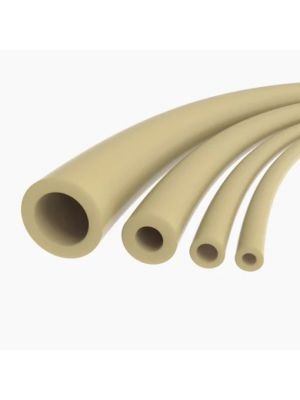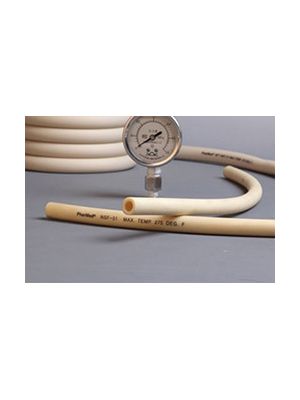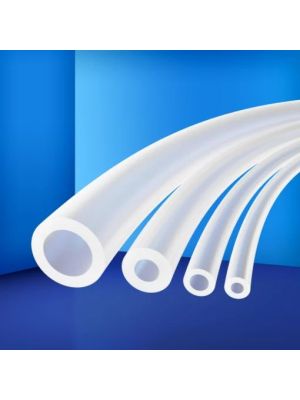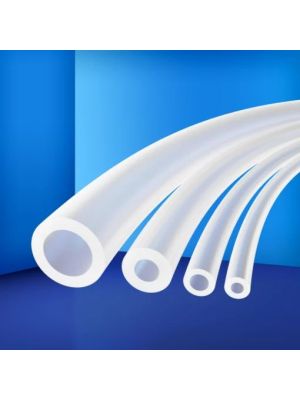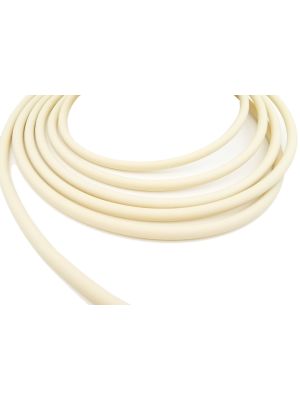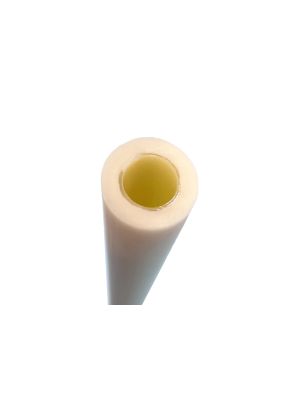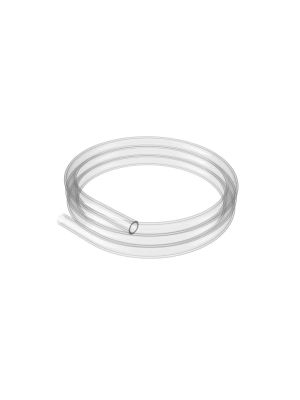
Peristaltic Pump Tubing
Tubing for peristaltic pumps is a critical component used in various industrial and medical applications. Selecting the right material for the tubing is essential to ensure optimal pump performance and durability. The most common materials used for peristaltic pump tubing include silicone, TPE (thermoplastic elastomers), EJ Prene, and Pharmed. Each material has specific properties that make it particularly suitable for certain applications.
-
-
-
- TPE Shore-A 68 Peristaltic Pump Tubing SKU:
TPE135Special Price $ 40.73 Regular Price $ 54.30 Discount 25% -
-
-
-
-
-
- Innovaprene® P60 MBT-3 Innovaprene® P 60 MBT - 3-stopper tube for cassette peristaltic pumps SKU:
Innovaprene® ...$ 15.11 -
-
-
-
-
-
Silicone Tubing
Silicone tubing is widely used in medical and food industries due to its high chemical resistance and biocompatibility, making it ideal for handling sensitive fluids like medications and food products. Silicone is highly flexible and can operate effectively at extreme temperatures ranging from -30°C to +200°C. However, silicone tubing is less resistant to some solvents and oils, which can limit its use in certain applications.
TPE Tubing (Thermoplastic Elastomers)
TPE tubing is a flexible and cost-effective alternative to silicone. It offers good abrasion resistance and can be sterilized, making it suitable for use in medical and pharmaceutical applications. TPE is also recyclable, which makes it a more environmentally friendly option. While its chemical resistance is somewhat lower compared to silicone, TPE provides sufficient resistance for many applications.
EJ Prene Tubing
EJ Prene is a modified elastomer that stands for high durability and flexibility. This material is particularly abrasion-resistant and is often used in pharmaceutical and biotechnology applications where the tubing is exposed to high mechanical stress. EJ Prene offers good chemical resistance and has a long service life, making it an ideal choice for continuous use in peristaltic pumps. EJ Prene hoses are particularly popular in applications where long service life and high durability are important.
Pharmed Tubing
Pharmed tubing is specifically designed for use in the pharmaceutical and biotechnology sectors. It is known for its excellent chemical resistance and longevity, even when subjected to continuous pumping over extended periods. Pharmed tubing is biocompatible and meets strict medical and pharmaceutical standards. It also offers strong resistance to ozone, UV radiation, and various disinfectants, making it the preferred choice for sterile and sensitive applications.

